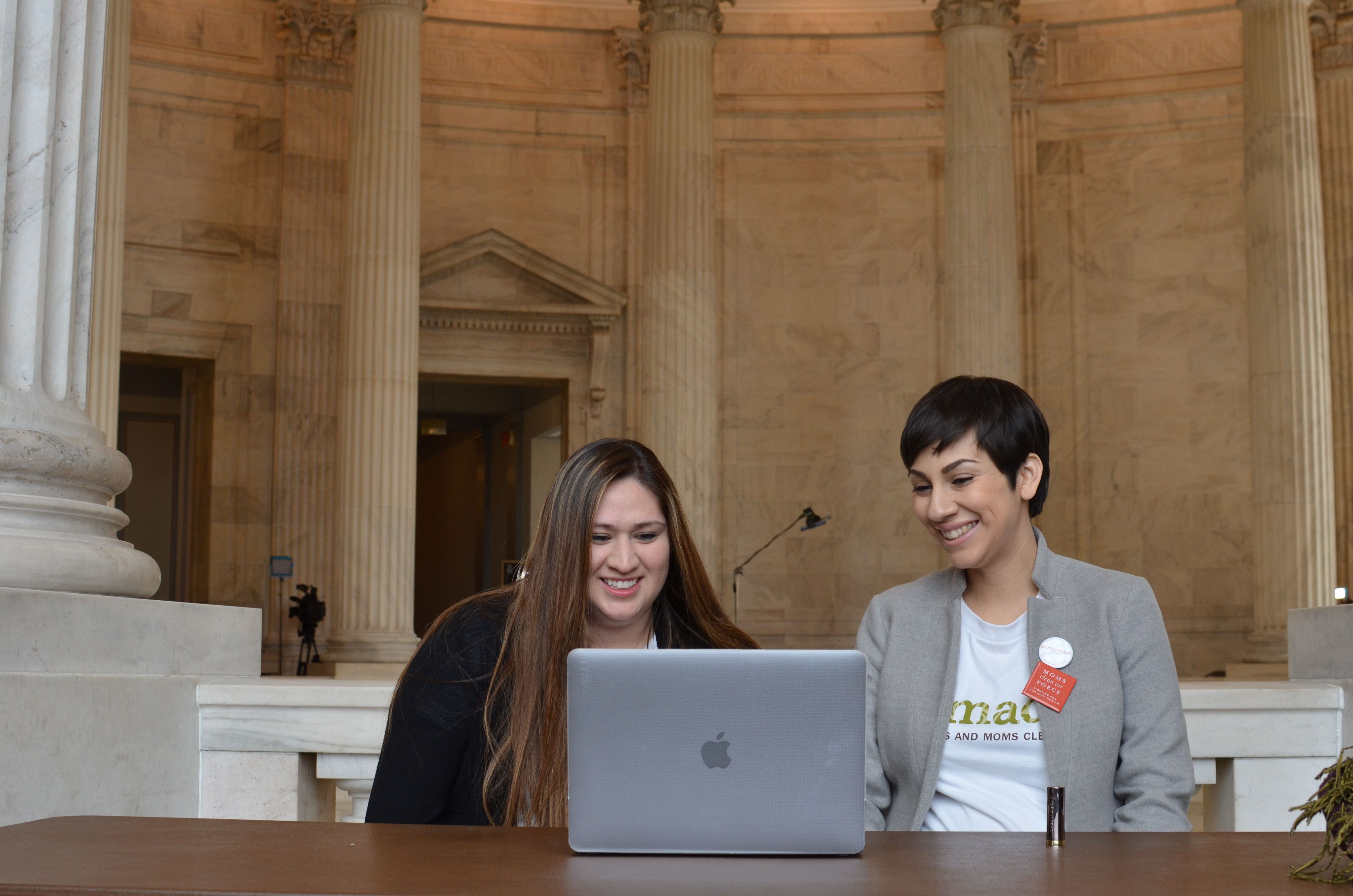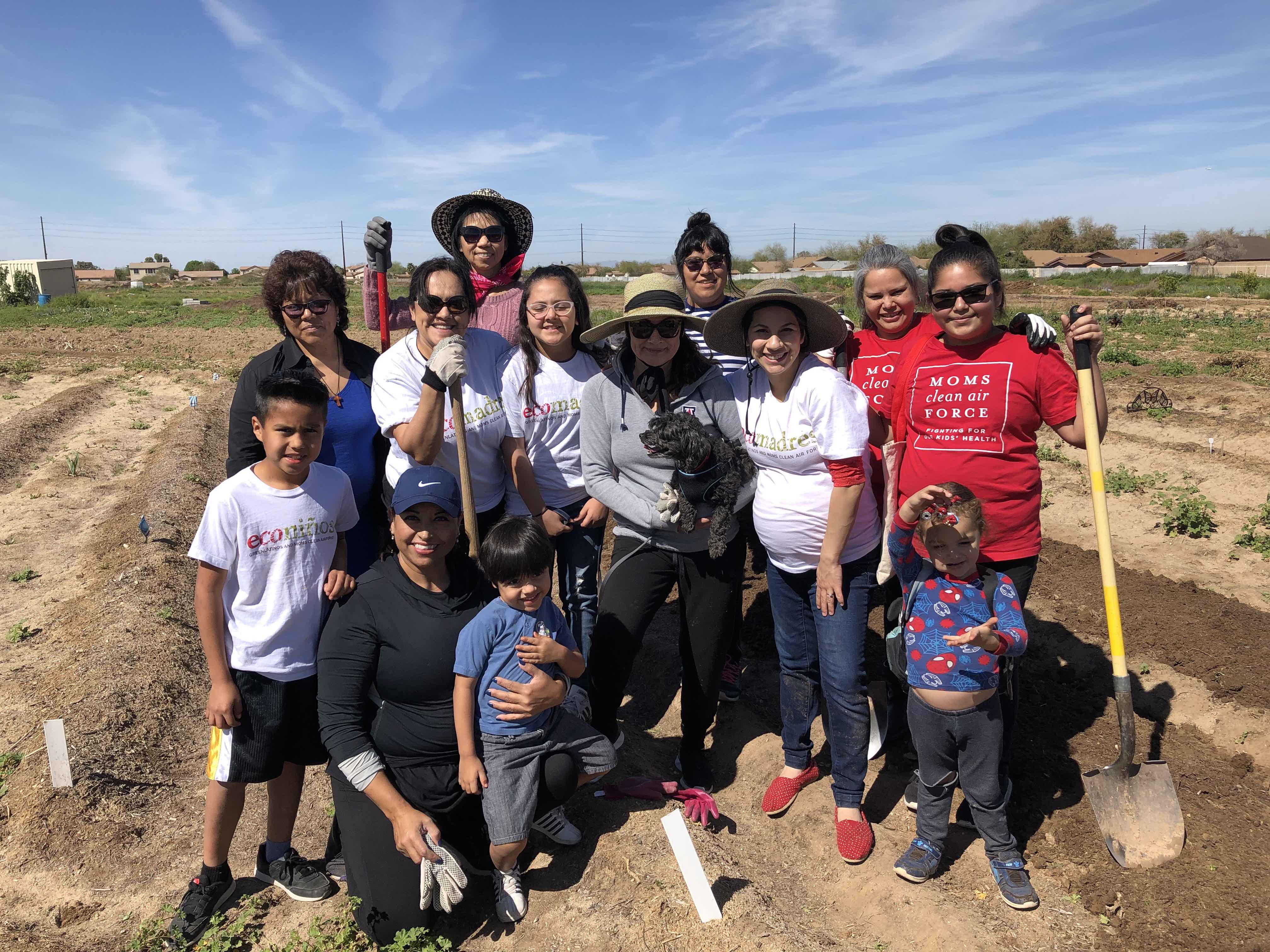One day, Columba Sainz’s daughter started wheezing. And then it happened again and again. Sainz soon realized there was a pattern: Her daughter would play in Phoenix’s Central Park and then she’d have trouble breathing. It didn’t take long for Sainz to make the connection between the symptoms – which her daughter had never exhibited before – and the air quality. The Central Park area, located in Downtown Phoenix, sees heavy traffic from freeways during rush hours in the morning, noon and afternoon.
“Climate change has disproportionately impacted lower-income neighborhoods.”
A trip to the pediatrician yielded no solutions, but Sainz, a 33-year-old mother of three, and her husband learned that the air in their county of Maricopa wasn’t great. In fact, the American Lung Association provides Maricopa county with an F grading for air quality. As a result, their air filters were filthy. Instead of changing them once a month, as recommended, they needed to replace them every two weeks.
Their situation isn’t isolated. All across the United States and the world, it is communities of color that feel most of the effects of climate change. While the topic is now gaining traction, particularly among younger generations, climate change has disproportionately impacted lower-income neighborhoods with majority Black and brown residents for much longer. And as the environmental movement charges on, it’s them who we should uplift and prioritize.
For Latinas involved in environmental justice, its stories like that of Sainz and her family that inspired them to get involved in advocacy. While impoverished communities of color are often an afterthought when it comes to green efforts, these activists ensure Black and brown neighborhoods are not forgotten and, instead, are prioritized in their work. Here, some Latinas from all over the nation fighting to ensure a safer, more sustainable and healthier future for our communities.
Gabriela Rivera, Field Manager of Moms Clean Air Force
Gabriela Rivera’s path toward environmental activism was inspired by different factors. As a formerly undocumented immigrant, the Chihuahua, Mexico-born change-maker felt like activism was a natural fit for her. She first began by advocating for access to higher education for immigrants and by holding lawmakers accountable for the ways that their laws hurt this community. But after President Donald Trump won the election, she knew she wanted to do more.

“I was looking for ways to strengthen Latino engagement in our democracy,” she says. “I started to ask myself, ‘What’s important? Who needs to be empowered? What’s an issue that’s disproportionately impacting my community, and how do I get involved?’ Air quality rose to the top of my list of high-priority issues.”
She currently works with Moms Clean Air Force, an organization that aims to protect children from air pollution and climate change. Through a joint project between Moms Clean Air Force and GreenLatinos, she is ensuring her activism is intersectional. The two groups together launched the Ecomadres initiative, which Columba is part of. It focuses on Latinx communities in Arizona, Florida, Iowa, Nevada, New Mexico and Texas.
Across the country, Rivera leads Ecomadres’ popular Cafecito program – intimate coffee break-style conversations where participants are invited to discuss how the environment can affect health. For Latinos, communities are extensions of families, which is why establishing this sort of dynamic was so important for Ecomadres. It engages communities in a variety of ways, including through regional events where parents and children from various cities can meet. The organization arms on-the-ground field organizers with cafecito kits for meetings and assists in lobbying efforts, where mothers, like Sainz, have the chance to speak directly to politicians.
Frances A. Pérez-Rodríguez, La Finca del Sur
On the other side of the country, Black Puerto Rican farmworker Frances A. Pérez-Rodríguez sounds the clarion call of urban farming in the heart of the South Bronx. It was Ken Burns’ 2012 The Central Park Five documentary that first got her involved in social justice work. The film inspired her to plunge into the Black Lives Matter Movement in 2015. She started as an organizer, with her work centering on police brutality in newly gentrifying communities.
“A place for community members to just exist in commune with nature.”
As these neighborhoods became more valuable, generations-old residents, usually people of color, were treated as refuse for police to clean up in the service of mitigating public nuisance. These interactions, however, increase the risk of police escalation, which can turn deadly. This led Pérez-Rodríguez to realize the ways in which land has been manipulated by industrialization and propped up as a source of oppression for underprivileged communities, instead of serving as a place for living and food bounty. As she worked with the justice committee hosting Know Your Rights trainings, she began to pick up an interest in cultivating medicinal herbs. Soon after, this turned into a passion for farming, leading her to attend Farm School NYC.
“It felt like I needed to completely immerse myself in land work and remember our relationship to the land, so I decided to become a farmer and grow food and medicine, basically in any situation,” Pérez-Rodríguez says.
She currently works with La Finca Del Sur, an urban farmer cooperative led by Latina and Black women in the South Bronx. For her, it’s a place for community members to just exist in commune with nature and discuss solutions and healing to various racial justice and police violence issues.
For Pérez-Rodríguez, protecting the planet must center justice for all. From the dawning of the Industrial Revolution, carbon emissions, particularly from global corporations, have precipitated irreversible damage to the planet. The profit motive to continue our reliance on fossil fuels, according to the activist, has proven to far exceed that of saving the planet, which is why she believes we shouldn’t rely on change to start from the top-down but rather through people power. “I’ve been, for the past four or five years, wanting to connect with the land and the truth and not what the powers that be teach us,” she says.
Nicole Hernandez-Hammer, The Clean Energy State Alliance
As an energetic child eagerly roaming the highlands of Guatemala, climate scientist Nicole Hernandez-Hammer may have envisioned a bright future, but she probably didn’t expect to be former first lady Michelle Obama’s esteemed guest at the 2015 State of the Union address.

“It was such an incredible honor, and I was deeply grateful for the opportunity,” Hernandez says humbly.
“Latinas make less on the dollar but are still willing to make the most sacrifices to ensure their families’ safety.”
All the moments leading up to the SOTU address were equally as noteworthy. Leaving Guatemala for Miami at the age of four, Hernandez’s family was soon hit with an ecological disaster of their own when they lost their home to Hurricane Andrew in 1992. With the environment always featuring pretty heavily in Hernandez’s life, she decided to study climate science full time.
This work took her in many different directions. At one point, she brought her work home, specifically to the majority Latino community of South Florida. With her focus being on sea level rises, Hernandez started mapping out the most vulnerable spots in South Florida. Armed with the knowledge, she began doing outreach with the same people most likely to be displaced due to flooding. Although her work did focus on the Gulf South, Hernandez, now based in Rhode Island, talks more broadly about the global impact of climate change. Being a Guatemalan immigrant of Cuban descent, her heart and concern is never too far from her origins.
Today, she is the project director for the Clean Energy State Alliance (CESA), where she focuses on creating opportunities for low-income communities to have better access to solar renewable energy.
In explaining her experience as a Latina working within communities, Hernandez says, “Latinas make less on the dollar but are still willing to make the most sacrifices to ensure their families’ safety.”







